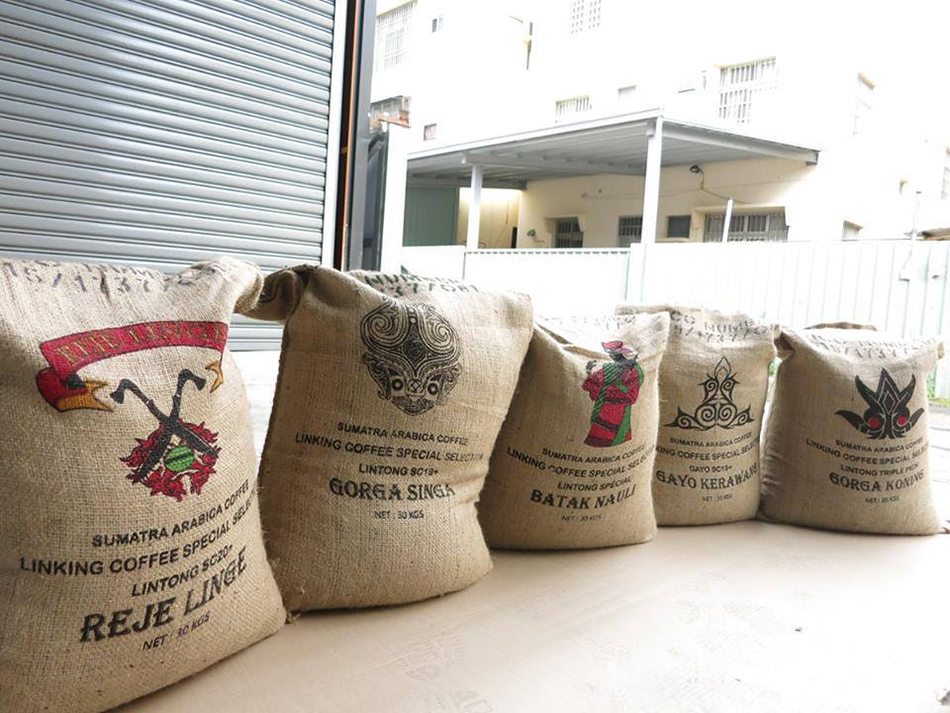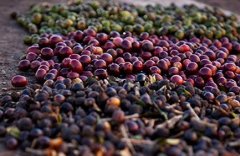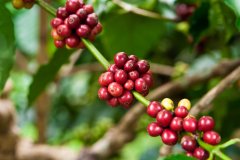The History of aged Coffee: the Origin, treatment process and Flavor characteristics of aged Mantenin

As a matter of fact, old coffee has a long history in Indonesia, because the early shipping is not so developed, and it takes a long time to transport coffee from Indonesia to other countries. over time, the water-rich fresh coffee beans are slowly dried, coupled with the sea breeze blowing to add a very special flavor. Due to the progress of modern shipping, transportation time has been greatly reduced, so coffee with a special flavor like this has become a specially processed coffee bean. The treatment of aged beans is a technology, which must be closely monitored during the aging process of coffee beans, the dry humidity and temperature of the warehouse have standard requirements, and coffee raw beans should be flipped irregularly, so as to avoid the drop or mildew between the upper and lower dry humidity. The aging process is not to make it lose its flavor, but to create another flavor, and a pleasant flavor.
Palate: aged manning Agedmandheling, sweet as honey. The successful old bean has worn away Manning's inelegant sour taste. The sour ingredients are ripe and converted to sugar, making the coffee more round and sweeter to drink. Manning is like a coffee zombie in the old age of failure, and the taste is hard to taste.
What is "Old Manning"?
The older the wine, the better the wine, and the coffee beans can also be aged. In the successful aged beans, the sour ingredients are precipitated and converted to sugar, making the coffee more round.
It may be the relationship between soil and water, climate and soybeans. At present, the aged beans with the highest power and the best quality are in Indonesia and India. Indonesia's aged beans are most famous for Mantenin and Java Old Brown. When they are made, the pods are first taken out to dry. When the moisture content reaches a certain level, the pods are not scraped off to protect the coffee beans, and then sealed and stored in storage. The dry humidity and temperature of the warehouse have certain operating standards, and the pods in the sacks should be turned regularly to avoid the drop or mildew between the upper and lower dry humidity. Aged beans take at least two to three years to mature, which can be called kung fu beans. The color of aged beans is yellowish brown or dark brown, and the sweet taste is so good that it can be used as a single product or espresso.
The aged Mantenin is a kind of distinctive characteristic produced by the special and complex treatment of the fresh gold of that year, and then after more than 5 years of special preservation. Like gold manning, the annual output is limited, and the yield of aged beans is smaller and more treasured because of the difficulty and complexity of processing and preservation. As a matter of fact, this kind of old coffee has a long history in Indonesia, because the early shipping is not so developed, and it takes a long time to transport coffee from Indonesia to other countries. over time, the water-rich fresh coffee beans are slowly dried, coupled with the sea breeze blowing to add a very special flavor! Due to the advances in modern shipping, transportation time has been greatly reduced, so coffee with such a special flavor has become a specially processed coffee bean. The treatment of aged beans is a technology, which must be closely monitored during the aging process of coffee beans, the dry humidity and temperature of the warehouse have standard requirements, and the pods in the sacks should be turned irregularly so as not to be scrapped due to the drop in humidity or mildew up and down. Not to make it lose its flavor, but to create another flavor, and a pleasant flavor! Therefore, beans can also be called "kung fu" beans.
Golden PWN Golden Mandheling: immortal grass, sweet toast, sweet nuts, sweet and sour sense of micro fruit acid form a good sense of hierarchy, rich and mellow, the aftertaste of the spice is very sweet
Lin Dong Mandheling: baked toast, nuts, pine, caramel, herbs
Aged gold Aged Mandheling: spices, caramel, wood, clay
Important Notice :
前街咖啡 FrontStreet Coffee has moved to new addredd:
FrontStreet Coffee Address: 315,Donghua East Road,GuangZhou
Tel:020 38364473
- Prev

2016 Best Panamanian BOP Champion Alida Coffee Manor the difference between sunbathing and washing
For the exchange of professional baristas, please follow the coffee workshop (Wechat official account cafe_style) Product name: 2016 Panama BOP champion Panama Boquete Elida Estate Natural lot49 (Panama Boquete Elida Estate Natural lot49) Flavor description: soft floral aromas, orange fruit notes, full flavor, smooth taste, sweet aftertaste Alida Manor (Finca Elida)
- Next

Panamanian Coffee Kasha Louise's Belina Manor the difference between Solar Iron Bika and Kaduai
For the exchange of professional baristas, please follow the coffee workshop (Wechat official account cafe_style) name: Panama Kasha Louise Bolina Manor Tibica Sunshine (Panama Casa Ruiz Berlina Typica Natural) Flavor description: strawberries, pomegranates, cherries, wine, syrup Sweet Casa Louise's estates recently won the award: best Panama in 2017
Related
- Detailed explanation of Jadeite planting Land in Panamanian Jadeite Manor introduction to the grading system of Jadeite competitive bidding, Red bid, Green bid and Rose Summer
- Story of Coffee planting in Brenka region of Costa Rica Stonehenge Manor anaerobic heavy honey treatment of flavor mouth
- What's on the barrel of Blue Mountain Coffee beans?
- Can American coffee also pull flowers? How to use hot American style to pull out a good-looking pattern?
- Can you make a cold extract with coffee beans? What is the right proportion for cold-extracted coffee formula?
- Indonesian PWN Gold Mandrine Coffee Origin Features Flavor How to Chong? Mandolin coffee is American.
- A brief introduction to the flavor characteristics of Brazilian yellow bourbon coffee beans
- What is the effect of different water quality on the flavor of cold-extracted coffee? What kind of water is best for brewing coffee?
- Why do you think of Rose Summer whenever you mention Panamanian coffee?
- Introduction to the characteristics of authentic blue mountain coffee bean producing areas? What is the CIB Coffee Authority in Jamaica?

